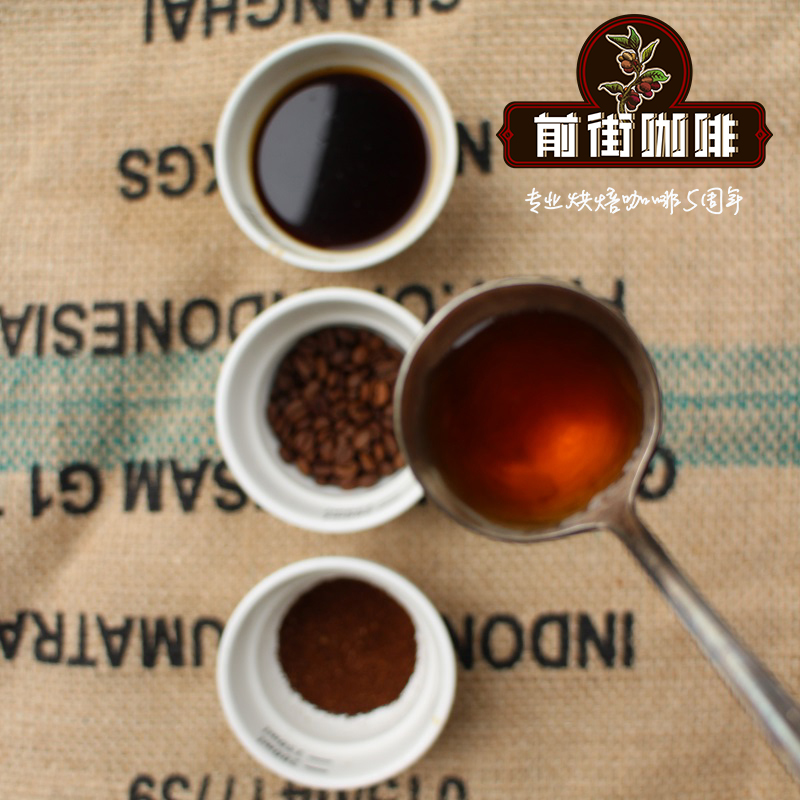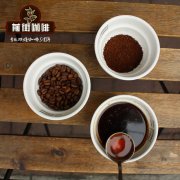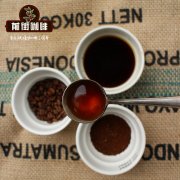Panama Santamaria Coffee Farm-Flavor of Kadura Coffee Beans? Santamaria Cardo

Professional coffee knowledge exchange More coffee bean information Please pay attention to coffee workshop (Weixin Official Accounts cafe_style)
Panama Santamaria Coffee Farm-Flavor of Kadura Coffee Beans? How do Santamaria Kadura varieties get hand-washed?
Santamaria Estate Coffee Farm is located in Paso Ancho, Cerro Punta, Bugaba District, Chiriqui Province, Brazil. The lowest point for coffee farms was 1564 masl and the highest point was 1946 masl. The total farm area is 120 hectares, of which 60 hectares are planted with coffee varieties Caturra, Typica or Criollo and Geisha. The soil has special volcanic characteristics, there is a certain amount of rainfall every year, and all kinds of high-quality Arabica coffee produce coffee beans with very special aroma, acidity and aroma.
The farm was put into operation in 1950 by its founder, Don Urbano Santamaría (RIP), who established the coffee plantation and sold it to the Martins family, owners of Finca La Florentina SA, located near the village of Ing. Santa Maria.
He began planting tall arabica varieties such as Criollo, Bourbon and Mundo Novo at a density of 1800 seedlings per hectare.
For health reasons, Don Urbano Santamaría transferred the administration of his estate in 1980 to Don José Luis Santamaría, who continued to practice agriculture and preserve the heritage. He began planting low-yielding but high-yielding varieties such as Caturra, which has become the dominant variety on the farm and currently accounts for 80 percent of its yield.
In the 1990s Ing. Edwin Santamaría took over the management of the farm and gave it a new impetus, improving the planting and production process, contributing to increased productivity and significantly improving coffee quality. It is already the third generation of coffee farmers dedicated to their work.
The planting density has been increased to 3,600 seedlings per hectare as a result of the introduction of Caturra varieties on farms, as Caturra is replanted between tall varieties. This produced a unique combination across all batches, when this diversity resulted in high-quality coffee and improved yields per hectare.
The brand name of the specialty coffee produced by the company is SANTAMAR�AESTATE COFFEE.
The farm produces high-altitude specialty coffee (1,564 to 1,946 m above sea level). The coffee produced at this high level has excellent quality and has all the characteristics that are rated as specialty coffee SHB (Strictly Hard Bean) on the international market.
Composed of local and international experts and green labels, the coffee is characterized by a distinctive aroma, taste and body, while the contour of the cup shows chocolate flavours with medium to high acidity and pleasant aftertaste.
The farm is seeking to adopt environmentally friendly farming practices such as using organic produce, in green labels that do not allow pesticides, tree felling and hunting. In addition, certain areas of the farm are designated as forest reserves, which contain crystallized drinking water to provide water for cooperative families and ecological processing plants.
Flavor: Sweet, delicate and rich. Jasmine, orange, sandalwood, sweet ripe banana, aroma and roasted cocoa in the cup, round, elegant sweet. Light and rich in texture. Jasmine, sandalwood and banana blend around for a sweet, long-lasting finish.
Front Street Recommended Brewing:
Filter cup: Hario V60
Water temperature: 91 degrees
Abrasion: Small Fuji Abrasion 3.5
Cooking method: water-powder ratio 1:15, 15g powder, first injection of 25g water, stewing for 25s, second injection to 120g water, water cut off, wait for the powder bed water to drop to half, then inject water slowly until 225g water, extraction time about 2:00
Analysis: Three-stage brewing, clear coffee before, during and after the flavor. Because V60 has many ribs, the drainage speed is faster, and the extraction time can be prolonged when the water is cut off, so that the nutty and chocolate flavor of the tail section can be better extracted.
Important Notice :
前街咖啡 FrontStreet Coffee has moved to new addredd:
FrontStreet Coffee Address: 315,Donghua East Road,GuangZhou
Tel:020 38364473
- Prev

Introduction to the characteristics of Flavor and taste quality of Rosa Coffee Bean varieties in Carmen Manor, Panama
Professional coffee knowledge exchange more coffee bean information please follow the coffee workshop (Wechat official account cafe_style) Panama Carmen Manor Rosa-CarmenEstateGeisha flavor? Is Rosa coffee the best? CarmenEstate is located in Porto.
- Next

Central American Coffee | Panamanian Jade Manor | Special Purple Rosa Coffee | individual Coffee Bean recommendation
Professional coffee knowledge exchange more coffee bean information please follow the coffee workshop (Wechat official account cafe_style) front street coffee individual coffee bean recommendation-Panama Red Standard Rose Summer | Panama Blue Standard Rose Summer Panama Jade Manor High altitude Private Edition Rose Summer Special Purple Standard (Water washing) production area: Poquette Grade: SHB treatment: washing altitude: 1400-1700
Related
- Detailed explanation of Jadeite planting Land in Panamanian Jadeite Manor introduction to the grading system of Jadeite competitive bidding, Red bid, Green bid and Rose Summer
- Story of Coffee planting in Brenka region of Costa Rica Stonehenge Manor anaerobic heavy honey treatment of flavor mouth
- What's on the barrel of Blue Mountain Coffee beans?
- Can American coffee also pull flowers? How to use hot American style to pull out a good-looking pattern?
- Can you make a cold extract with coffee beans? What is the right proportion for cold-extracted coffee formula?
- Indonesian PWN Gold Mandrine Coffee Origin Features Flavor How to Chong? Mandolin coffee is American.
- A brief introduction to the flavor characteristics of Brazilian yellow bourbon coffee beans
- What is the effect of different water quality on the flavor of cold-extracted coffee? What kind of water is best for brewing coffee?
- Why do you think of Rose Summer whenever you mention Panamanian coffee?
- Introduction to the characteristics of authentic blue mountain coffee bean producing areas? What is the CIB Coffee Authority in Jamaica?

